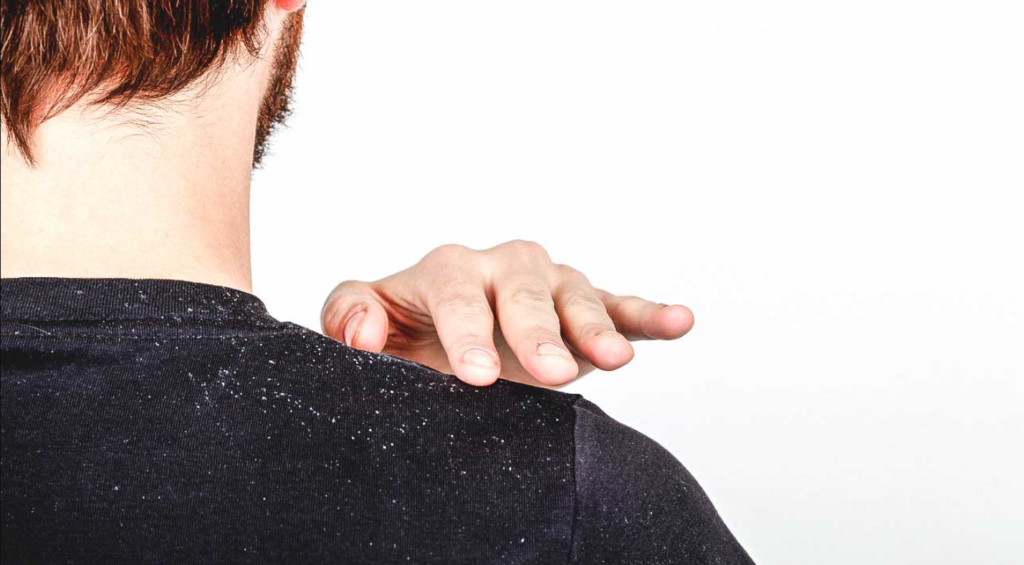Is Dandruff Contagious? Understanding the Truth Behind Scalp Health
Dandruff, a common scalp condition, often raises concerns and questions about its nature and transmission. This article delves into the topic of whether dandruff is contagious, offering insights and expert opinions to dispel myths and provide factual information.
What is Dandruff?
Dandruff is characterized by flaking of the scalp, often accompanied by itching. Contrary to popular belief, it is not a sign of poor hygiene but rather a complex interaction of factors like skin oil production, yeast presence, and individual susceptibility.
Is Dandruff Contagious?
The short answer is no. Dandruff is not contagious and cannot be transmitted from person to person. It is caused by factors internal to an individual’s body and scalp environment.
Symptoms and Identification
Identifying dandruff involves looking for white or yellow flakes on the scalp and hair, along with itching. It’s important to differentiate dandruff from conditions like psoriasis or seborrheic dermatitis, which require different treatments.
RELATED ARTICL : 10 TIPS ON HOW TO STOP NATURAL HAIR BREAKAGE
Causes of Dandruff
Dandruff can be caused by a variety of factors, including dry skin, seborrheic dermatitis, sensitivity to hair care products, and a yeast-like fungus called Malassezia. Each cause may require a specific approach to treatment.
Treatment Options
Treatments for dandruff include over-the-counter shampoos containing zinc pyrithione, selenium sulfide, ketoconazole, or coal tar. In more severe cases, prescription treatments may be necessary.
Natural Remedies
Many people find relief with natural remedies like tea tree oil, aloe vera, or apple cider vinegar. These can be used in conjunction with or as alternatives to traditional treatments.
RELATED ARTICL : 5 BENEFITS OF BEESWAX FOR HAIR
Preventive Measures
To prevent dandruff, it’s essential to maintain a healthy scalp environment. This can involve using the right hair care products, managing stress, and ensuring a balanced diet.
Expert Opinions
Dermatologists emphasize the importance of correctly identifying the cause of dandruff to choose the most effective treatment. They also highlight that, while not contagious, dandruff can be a chronic condition that requires ongoing management.
Dandruff in Different Age Groups
Understanding how dandruff affects various age groups can help in developing age-appropriate treatment strategies. In children, dandruff is often a result of cradle cap, while in adults and the elderly, factors like hormonal changes and reduced oil production play a role.
Dandruff in Various Hair Types
Managing dandruff can be different for various hair types. For instance, curly or textured hair may require different care routines compared to straight hair. It’s crucial to select hair care products that are suitable for your hair type while treating dandruff.
Impact of Lifestyle on Dandruff
Your lifestyle plays a significant role in the management of dandruff. Factors like diet, stress, and even the weather can influence the severity of dandruff. Incorporating a balanced diet, managing stress, and adapting hair care routines according to the weather can be beneficial.
Psychological Impact of Dandruff
Dandruff can have a significant emotional and social impact. It can lead to a lack of confidence and social anxiety. Understanding this aspect is crucial for holistic treatment, which includes not only addressing the physical symptoms but also providing emotional support.
Expert Interviews: Dermatologists Speak
Insights from dermatologists provide valuable perspectives on dandruff. They emphasize the importance of a correct diagnosis and personalized treatment plans. Their expert opinions help debunk myths and provide evidence-based advice.
Comparing Dandruff Treatments
It’s important to compare different dandruff treatments to find what works best for you. This section covers the pros and cons of various methods, including over-the-counter products, prescription treatments, and natural remedies, supported by case studies.
Dandruff and Hair Care Products
Choosing the right hair care products is essential for managing dandruff. This section guides on what ingredients to look for and what to avoid in shampoos, conditioners,
FAQs
Conclusion
In conclusion, while dandruff is a common and sometimes frustrating condition, it is not contagious. Understanding its causes and treatments can help manage symptoms effectively. Remember, a healthy scalp is key to managing dandruff.
- Can dandruff spread through combs or pillows? No, dandruff cannot be spread through sharing combs, pillows, or hats.
- Is dandruff a sign of poor hygiene? Dandruff is not caused by poor hygiene, though keeping the scalp clean can help manage it.
- Can diet affect dandruff? While diet alone doesn’t cause dandruff, certain foods can exacerbate or improve symptoms.
- Does dandruff lead to hair loss? Dandruff does not directly cause hair loss, but the associated itching can lead to scratching, which might damage hair follicles.
- Are natural remedies effective for dandruff? Some people find relief with natural remedies, but their effectiveness can vary.
- How often should I wash my hair if I have dandruff? The frequency of hair washing depends on your scalp’s needs and the severity of your dandruff.

